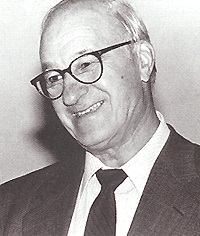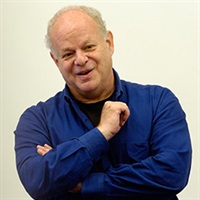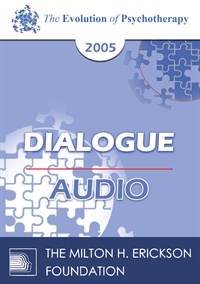EP05 Dialogue 03 - Positive Psychology and Self-Efficacy - Albert Bandura, PhD and Martin Seligman, PhD
- Average Rating:
- Not yet rated
- Topic Areas:
- Dialogues | Positive Psychology | Psychology | Psychotherapy
- Categories:
- Evolution of Psychotherapy | Evolution of Psychotherapy 2005
- Faculty:
- Albert Bandura | Martin Seligman, PhD
- Duration:
- 56 Minutes
- Format:
- Audio Only
- Original Program Date:
- Dec 09, 2005
- License:
- Never Expires.
Description
Description: A wide-ranging, thoughtful exchange on human agency, self-efficacy, and the future direction of psychotherapy. Moving between theory, research, and lived example, the conversation challenges deficit-based models of mental health and explores how beliefs, choice, values, and social context shape resilience, morality, and change. For therapists and students, it offers a rare chance to hear two foundational thinkers wrestle openly with optimism, responsibility, and what it means to help people build lives that feel worth living.
Educational Objectives:
- Given a topic, to describe the differing approaches to psychotherapy, and to identify the strengths and weaknesses in each approach.
*Sessions may be edited for content and to preserve confidentiality*
Credits
Faculty

Albert Bandura Related Seminars and Products
ALBERT BANDURA, Ph.D., is Professor of Psychology, Stanford University. He has been elected to the American Academy of Arts and Sciences and the Institute of Medicine of the National Academy of Science. Dr. Bandura is a proponent of Self-Efficacy Theory. This theory and its diverse applications are presented in his recently published book, Self-Efficacy: The Exercise of Control.
Bandura has been responsible for contributions to the field of education and to several fields of psychology, including social cognitive theory, therapy, and personality psychology, and was also of incluence in the transition between behaviorism and cognitive psychology. He is known as the originator of social learning theory (renamed the social cognitive theory) and the theoretical construct of self-efficacy, and is also responsible for the influential 1961 Bobo doll experiment. This Bobo doll experiment demonstrated the concept of observational learning.

Martin Seligman, PhD Related Seminars and Products
Martin E.P. Seligman, Ph.D in Psychology, is the Zellerbach Family Professor of Psychology and Director of the Positive Psychology Center at the University of Pennsylvania, where he focuses on positive psychology, learned helplessness, depression, and optimism. He is a best-selling author of several books, including Flourish. He received the American Psychological Society’s William James Fellow Award for basic science and Cattell Award for the application of science, and two Distinguished Scientific Contribution awards from the American Psychological Association. In 1996, Seligman was elected President of the American Psychological Association by the largest vote in modern history. His current mission is the attempt to transform social science to work on the best things in life – strengths, positive emotion, good relationships, meaning, and human flourishing.


